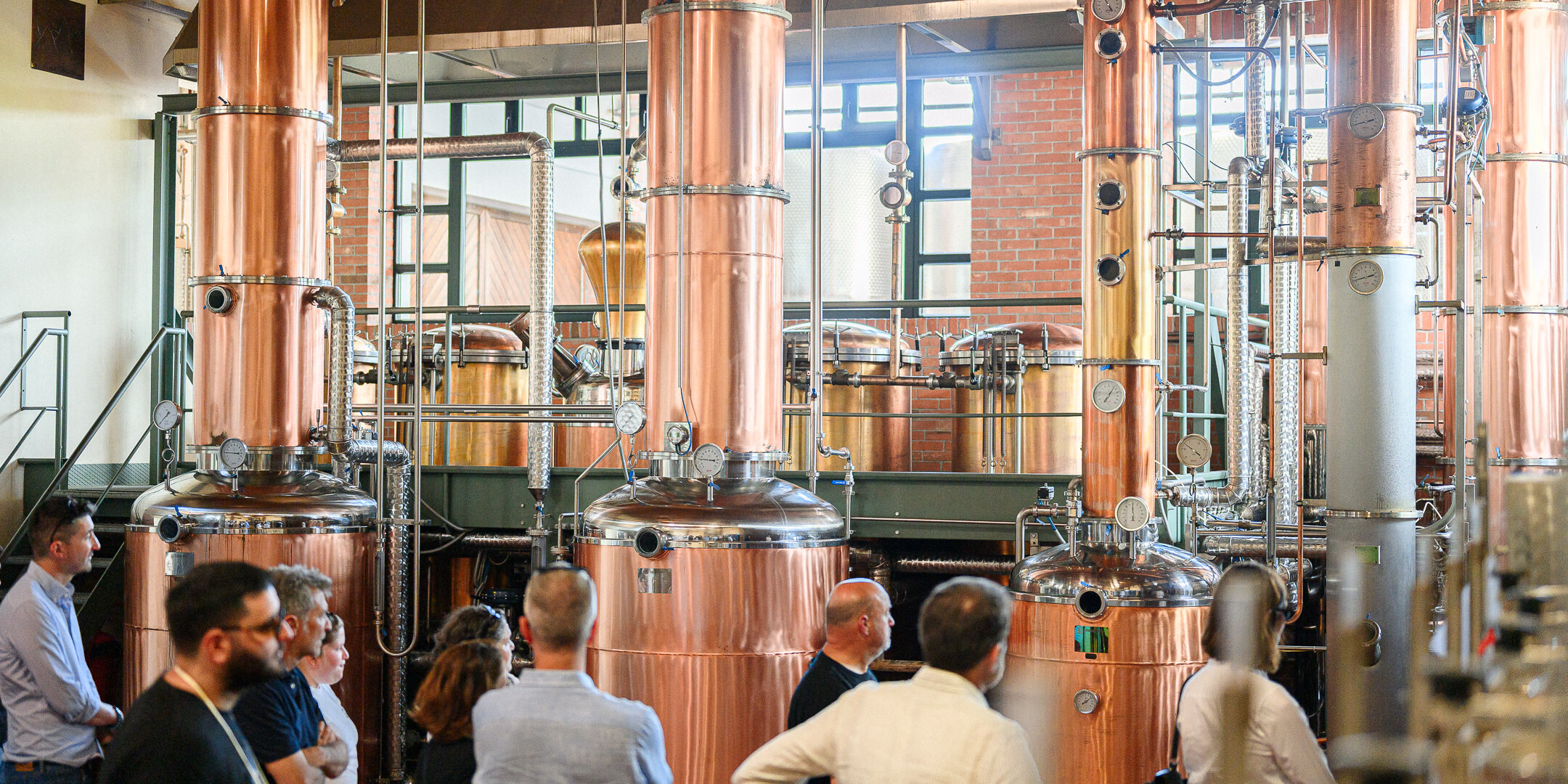Porte Aperte in Cantina!
A day of guided tours, tastings and culture with LoveLanghe!

Discovering Distilleries has never been easier.
On Sept. 20 and 21, the doors of Distilleries are open again: free guided tours with tastings, without reservations, at both times 10 a.m. and 3:30 p.m.
In addition to discovering the cellars and the secrets of distillation, it will be possible to freely visit the recently renovated Berta Museum and the Segnocolore VENTIVENTI exhibition by artist Massimo Ricci, a path between matter and color that dialogues with the distillery spaces.
An opportunity to experience the history, art and spirit of our area together.
For info, call +39 0141739528 or write to info@distillerieberta.it!